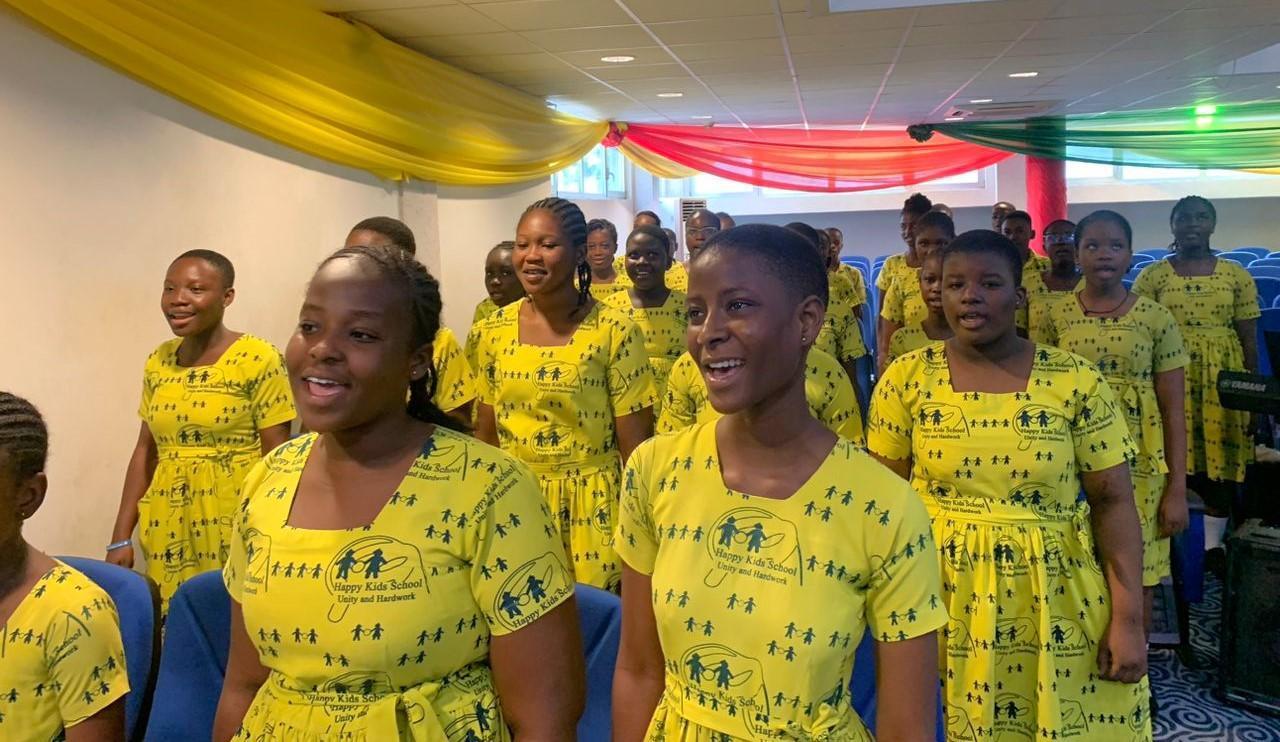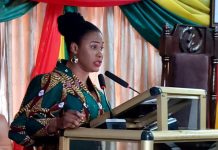Africa-Press – Ghana. The Department of Children has commemorated the 2024 National Children’s Day with a call on traditional, religious and community leaders to continue to use their platforms to champion children’s rights.
The Day was on theme: “Building Bridges: Fostering Child Rights through Cultural, Religious and Traditional Leadership.”
Madam Dakoa Newman, Minister of Gender, Children and Social Protection, who made the call at the occasion in Accra, said: “Let us work together to ensure that our cultural practices and religious beliefs are used not to justify the violation of children’s rights, but to protect and uplift them.”
She noted that cultural, traditional, and religious leaders hold unique positions of influence and that they could use their voices to guide and transform the lives of children by ensuring that their rights are upheld in every corner of the nation
“As we celebrate the national children’s day let us pledge to build bridges; bridges that connect our past with our future, our culture with our laws where every child in Ghana is safe, educated and empowered to realise their full potential,” Madam Newsman stated.
She urged Ghanaians to unite to build bridges of understanding, compassion, and actions to ensure that their children grow up in the world where their rights are recognised and protected
She stated that despite the best efforts by the citizenry, many of their children continue to suffer from practices that rub them of their childhood rights and their future and cited one of the challenges as child-marriage.
The Minister said: “According to UNICEF one out of five girl-children are forced into marriage before the age of 18. These girls who should be in school to dream about their future are instead rushed into adult responsibilities with dire consequences.”
Madam Newman appealed to cultural and religious leaders to speak out against such harmful practices to help shape societal norms and protect the girls from being forced into marriages that compromise their wellbeing.
She said girls’ education and keeping them in school was a critical issue for the future of Ghana.
She asked: “How can we expect our girls to stay in school when something simple as crossing a river prevents them from attending school because they are menstruating?
“More alarmingly statistics from 2021 reveal that over 482,000 girls are out of school due to issues like exchange marriages, betrothals, early marriages, poverty, and challenges related to menstrual hygiene.”
Madam said another pressing issue was child neglect and called for the strengthening of the family unit, promotion of responsible parenting, and provision of support systems for the vulnerable families.
“Together let us foster a society that respects and upholds the rights of every child knowing that in safeguarding our children; we safeguard the future of our nation.
Madam Pauliina Sarvilahti, Country Representative of UNICEF said over the years her organisation has been working in partnership with government and civil society organisations to address issues such as child marriage and other child-related matters through multiple strategies and interventions.
“Over 350 traditional and religious leaders have been directly engaged by UNICEF across the 16 regions of Ghana and also there has been community engagements with child protection advocates to create safe and protective environment for children,” she stated.
She said in 2023 UNICEF partnered the Centre for National Culture to use drama to sensitise communities on the effect of child marriage and other child abuse issues.
Madam Sarvilahti gave the assurance that the organisation would continue to work with ministries, departments, and agencies including important actors like traditional and religious leaders to effectively play their roles in creating safe and protective communities, schools, and families.
For More News And Analysis About Ghana Follow Africa-Press







